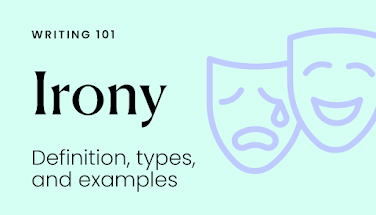- Get link
- X
- Other Apps
- Get link
- X
- Other Apps
Irony, Types of Irony & Irony in the ‘Pride and Prejudice’
Irony
The irony is one of the figures of speech.
It occurs when reality diverges from our expectations. The crucial word here is
"opposite," not merely "different." This discrepancy can be
seen in situations or language ‘what we say versus what we mean’, ‘what we
expect to happen vs. what actually happens’.
Types of Ironies
There are some common forms of irony:
ü Dramatic Irony
ü Verbal Irony
ü Situational Irony
Ø Dramatic Irony
Ø Verbal Irony
Ø Situational Irony

Ironies in
the novel Pride and Prejudice
The irony is what separates appearance from reality. Jane Austen's writings are infused with irony, and Austen's use of irony is a major source of her wit. In "Pride and Prejudice," we encounter three types of irony: verbal, situational, and dramatic.
The use of verbal irony is a
good example of Austen's use of wit. Sarcasm is the most popular definition of
verbal irony (mockery, cynicism). It occurs when a character or the narrator says
something, but the meaning is completely different. The first line of the work,
“It is a truth universally acknowledged that a single man
in possession of a good fortune must be in want of a wife”. (p.
1)
A situational ironic event is one in which the exact opposite of what happens is anticipated. During the party, when Bingley asks Darcy to dance with Elizabeth, he politely rejects, saying, "She is tolerable but not handsome enough to tempt me…” (p. 8). But soon after, he is attracted by her alluring eyes and wants to dance with her at the next party. Furthermore, Elizabeth admits to Mr Collins that she is not the kind to turn down the first offer and accept the second, yet she does so when Darcy makes a second proposal. Additionally, Darcy proposes to Elizabeth when she despises him the most, while Collins proposes to her when her heart is full of Wickham.
When something that the characters
are unaware of is made known to the reader, dramatic irony occurs.
Additionally known as character irony. It stands out considerably more than the
irony of the circumstance. For instance, it is ironic that Elizabeth, who takes
pride in her perception and mocks Jane for being oblivious to reality, is
herself prejudiced and therefore blind. Furthermore, despite their hatred for
the Bennets' vulgarity, Bingley's sisters exhibit vulgar behaviour too. Such
individuals were depicted by Jane Austen for the readers' enjoyment and moral
upbringing.
For More Articles Check This...







Comments
Post a Comment